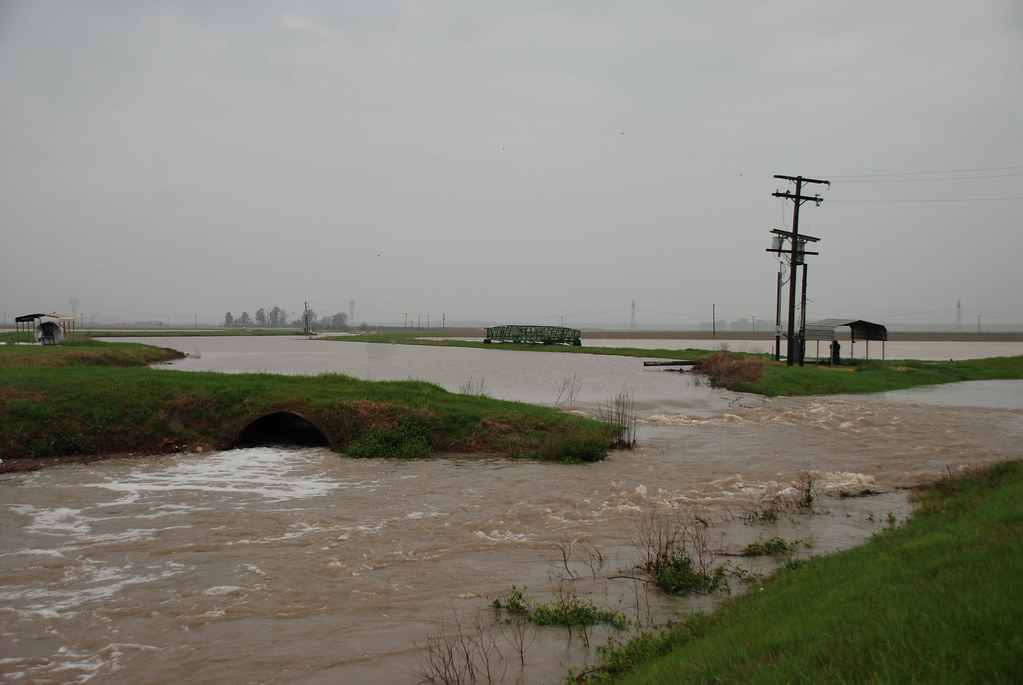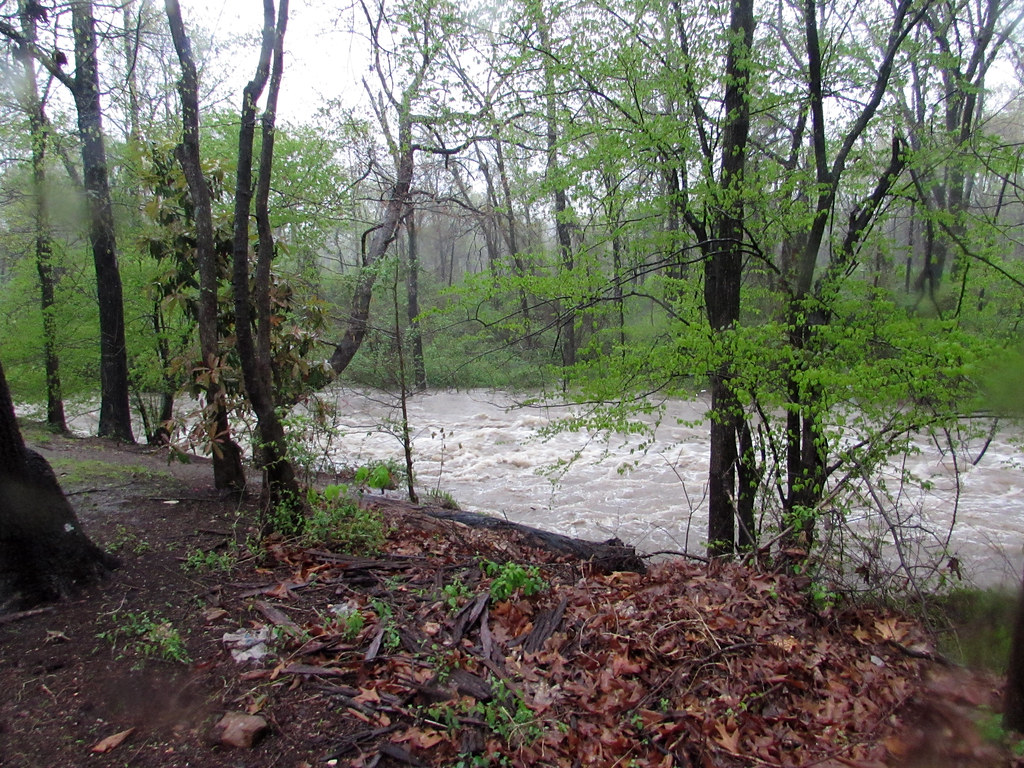Storms drop record rain, funnel clouds; NW Arkansas anticipates freezing temps
By Mary Hightower
U of A System Division of Agriculture
Fast Facts:
- Arkansas hit by large hail, funnel clouds, record rainfall
- Row crop farmers assessing damage
(623 words)
(Newsrooms: with downloadable art at: www.flickr.com/photos/uacescomm/25566770753)
LITTLE ROCK — It may be Monday or Tuesday before some row crop farmers are able to resume planting in the wake of strong storms that raked the state with large hail, funnel clouds and record rainfall.

On Thursday, hail from .75 of an inch to 1.5 inches was reported in Lonoke, Monroe and Prairie counties and high winds were blamed for toppling trees and damaging a home in Camden, according to a report compiled by the National Weather Service.
According to the National Weather Service, Wednesday’s storms broke many daily and monthly records, and that was before another round of storms moved through on Thursday morning, the final day of the month:
- North Little Rock – New daily record of 4.94 inches.
- Stuttgart – New daily rainfall record of 3.34 inches
- Batesville – New daily rainfall of 4.45 inches
- Hot Springs – New daily record rainfall of 2.17 inches
- Jacksonville – New daily record rainfall of 3.7 inches at Little Rock Air Force Base
- Monticello – New daily record of 2.14 inches.
Meanwhile, northwest Arkansas was expecting patchy frost by Saturday morning with temperatures forecast to dip to near freezing on Friday night.
“My rain gauge read right at one-tenth of an inch. We could use more rain,” said Berni Kurz, Washington County Extension staff chair for the University of Arkansas System Division of Agriculture.
“We are expecting freezing temperatures early Saturday morning which is Fayetteville Farmers Market grand opening for this season,” Kurz said. “Market gardeners’ fields are in pretty good shape. They have been using floating row covers a lot this late winter to protect those cool season crops.”
Washouts and re-dos
Row crop farmers in the Arkansas Delta were assessing the damage after a Wednesday evening interrupted by tornado warnings. Thursday was no better, with a second round of thunderstorms with high winds and large hail blowing through parts of the Arkansas River Valley and the Delta.
“Probably over 10 percent of Arkansas’ rice acreage has been planted to date,” said Jarrod Hardke, extension rice agronomist for the University of Arkansas System Division of Agriculture. “The areas where most of that has been planted received between 4 and 7 inches of rain over the past 24 hours.
“The biggest concern for those fields will be the potential for destruction of new levees that wouldn’t withstand the intense flooding brought on by the heavy rains,” he said. “The rice seed itself, as long as not exposed by erosion from moving water, will likely be fine and emerge normally for this time of year once the water recedes and warm temperatures set in.
“However, levees seeded with rice that are destroyed and have to be re-pulled will need to be re-seeded and that rice could potentially be out of sync with the rest of the rice in the field creating management and harvest issues,” Hardke said.
Rain hit a corn verification field hard in Lincoln County, said Kevin Lawson, extension area agronomist for corn and sorghum for the University of Arkansas System Division of Agriculture.
“We had 5 inches of rain and lost about a half-inch of soil on the beds,” he said Thursday afternoon.
In Phillips County, County Extension Agent Robert Goodson said that after 3-4 inches of rain, “there was some water on fields, but most drains fairly quickly. We may be back in the field on Monday or Tuesday.”
Lonoke County Extension Agent Keith Perkins doesn’t expect there to be any major setbacks in his county. In many cases, flooded fields have not yet been planted.
“We are still early in the planting window and this has just delayed us a few days depending on how fast the water gets off and the soil type,” he said. “This rain actually helped activate the herbicides on rice and corn.”

To learn more about crop production, contact your local cooperative extension agent or visit www.uaex.uada.edu.
Pursuant to 7 CFR § 15.3, the University of Arkansas System Division of Agriculture offers all its Extension and Research programs and services (including employment) without regard to race, color, sex, national origin, religion, age, disability, marital or veteran status, genetic information, sexual preference, pregnancy or any other legally protected status, and is an equal opportunity institution.
# # #
By Mary Hightower
The Cooperative Extension Service
U of A System Division of Agriculture
Media Contact: Mary Hightower
Dir. of Communication Services
U of A Division of Agriculture
Cooperative Extension Service
(501) 671-2126
mhightower@uada.edu
Related Links